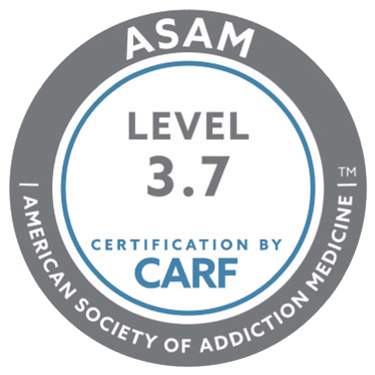Addiction Treatment Programs
Becoming addicted means losing control over using, doing, or taking something—so much so that it becomes harmful to your physical and psychological health.

Addiction is often attributed to practices like gambling, drug use, and alcohol drinking. As someone managing addiction, these harmful habits can take drastic tolls on your personal, social, and professional lives.
On a community level, addiction can negatively impact education and economic sectors, leading to low productivity, violence, crime, and homelessness.
For this reason, treatment is a critical turning point in mitigating these major issues.
Comprehensive and personalized treatment can help you manage the disruptive effects of addiction and allow you to regain control in all facets of your life.
Understanding the Complexity of Addiction
Addiction is a complex topic with various psychological, social, and biological facets.
A substance abuse addiction rewires a person’s brain to become compelled to use. The drug becomes the prime reward system for users.
They become continuously distracted with thoughts of seeking the same pleasure outcome of substance use. This need can significantly affect a person’s social standing.
As an addict, you prioritize using over engaging in social gatherings to both seek pleasure and avoid the concerned watchful eyes of your friends.
Additionally, addiction can negatively affect your personality, making you more irritable and anxious.
In the physical sense, addiction afflicts your body with dependence on drug or alcohol use.
You’ll be physically unable to feel satisfied without use. Consequently, you’ll likely experience symptoms of withdrawal, making it more challenging to seek help.
Overall, these biological and behavioral changes in your brain and body prove that addiction is a chronic illness rather than a moral failing.

Assessment and Personalized Treatment Planning
With any addiction treatment, a thorough evaluation is vital to create a well-tailored treatment plan. The assessment will allow healthcare professionals to better understand a patient’s needs and address them effectively.
It means that behavioral professionals will need to know the background and roots of the individual’s addiction. They’ll likely consider factors like family, usage rate, tolerance, life circumstances, relationships, and emotional well-being.
Subsequently, understanding these factors will allow behavioral professionals to uncover the underlying causes of your addiction, identify triggers, and pinpoint unhealthy behavior habits and relationships in your life.
That way, they’ll have a higher success rate of tackling the addiction.
Various Types of Addiction Treatment Programs
While there are various types of addiction treatment programs available, each aims to alter your behavior pattern and manage physical dependence on using.
If choosing an option becomes too challenging, you can always rely on our online wealth of resources at the Recreate Behavioral Health Network to guide you through the best addiction treatment for you or your loved ones.
Detoxification Programs
Detoxification programs primarily target withdrawal within patients. They work by clearing your body’s system of traces of drugs and alcohol. Afterward, professionals assist you through managing the withdrawal that follows the detoxification process.
These programs can typically last between a few days and weeks. Once you’ve stabilized, you’re then usually moved to inpatient care.
One of our many facilities, Allure Detox, offers a wide variety of detoxification protocols to help you get back on track.
Inpatient/Residential Programs
Inpatient and residential programs are classified as high-intensity programs for substance abuse patients. They involve living in a controlled environment, whether in a resort or hospital-like setting.
The program stresses 24-hour care and rehabilitation. Some options also offer round-the-clock supervision. It can last approximately a few weeks to months or even a year, depending on the patient’s case.
Outpatient Programs
Outpatient programs usually follow inpatient care. They’re less intensive since patients are still living in their homes. During the program, they go to their healthcare professional for sessions that can last around nine hours or more weekly.
The location varies from treatment centers to hospital-affiliated clinics. Some outpatient programs provide more flexibility with timing, allowing nighttime and weekend visits.

Partial Hospitalization Programs (PHP)
PHP is like a hybrid treatment, combining outpatient and inpatient support methods. Patients continue living in their homes but receive more extensive hourly support, between four and eight hours per day.
It’s a common program for families with teens dealing with addiction. It gives parents more time with their children rather than leaving them in residential or inpatient care.
Sober Living/Transitional Housing
Sober living or transitional housing are addiction program options that allow patients to live with residents facing similar issues with clear and heavily enforced abstinence rules.
The houses can be either group-led or guided by staff. As its name suggests, transitional housing provides a middle between inpatient care and recovery.
According to studies, sober living has shown an impressive improvement in patient outcomes, with abstinence rates rising from 11% to 68% when tested on multiple groups.
12-Step Programs and Support Groups
12-step programs and support groups are less intense addiction treatment choices compared to inpatient and outpatient care.
The prior focus is on spiritual principles, self-reflection, and accountability. Meanwhile, support groups allow you to share your personal experiences with others facing similar issues. You meet new people, and they hold you accountable.
Fortunately, there’s a wealth of these groups, including options like Alcoholics Anonymous.

Therapeutic Approaches in Addiction Treatment
Engaging in therapy and counseling approaches is crucial when treating addiction. You can implement various therapeutic approaches, including:
Behavioral Therapies
Behavioral therapies branch out to multiple types, including cognitive, dialectical, and motivational interviewing choices.
Cognitive behavioral therapy, for starters, involves enhancing self-control through learning new skills and developing new thinking patterns to cope and avoid relapse.
Dialectical behavioral therapy, on the other hand, focuses on mindfulness and accepting negative thoughts, behaviors, and emotions.
Finally, motivational interviews entail a therapist motivating their patient by understanding their intrinsic motivations. They try to identify what motivates their patient to stay on the sobriety path.
Pharmacotherapy
Pharmacotherapy involves using prescribed medication to treat addiction. For instance, opioid addiction and alcohol dependence users may be required to take methadone and naltrexone, respectively.
Holistic Therapies
Holistic therapy allows patients to recover through a more spiritual path. That can include doing yoga, acupuncture, meditation, and nutritional counseling.
Family and Group Therapies
Family and group therapies look at how the user’s addiction issue impacts the family or group dynamic. The therapies attempt to ease the frustrations and stress involved with having an affected family member.
The therapies provide methods for improving communication and creating a more personalized environment for the user to promote abstinence.

Specialized Treatment Programs
Specialized treatment programs are customized to a patient’s needs, whether that involves enrolling in a gender or age-specific program or requesting a dual diagnosis treatment.
In the latter’s case, you might be struggling with addiction and a mental disorder as well, requiring more specialized attention.
That said, these specifications can alter your treatment needs. For instance, a teenager will likely respond better to cognitive behavioral therapy since they’re more exposed to peer pressure.
The Role of Aftercare in Sustained Recovery
As patients step back into the real world, attending aftercare can sustain recovery in the long run. It allows them to plan for any possible triggers and appropriate coping mechanisms to use to prevent relapse.
Aftercare can range from support groups and continued therapy to alumni programs and sober living.
Challenges and Barriers to Treatment
One of the many challenges associated with treatment is the stigma attached to people with substance abuse. People may often label others with the diagnosable disease, leading to demotivation for treatment efforts.
Besides that, financial constraints and lack of healthcare insurance can pose a challenge for those seeking recovery. Fortunately, various state-funded and sliding-scale fee options can mitigate these constraints.
In addition to financial limitations, logistical barriers like time and location can also affect a patient’s treatment efficacy rate.

The Road Ahead: Innovations and Evolutions in Treatment
Speaking of logistical challenges, innovations like telehealth can make a vast difference. Tele-treatment involves recovery through online counseling and support groups.
It reduces travel time, saves costs, increases privacy, and provides digital tools for immediate support services.
Other innovations involve recent advancements in pharmacological addiction treatment.
Conclusion
Seeking help alone requires willpower, but is a vital first step. Addiction will only get worse as you let it pass by. No matter how many times you think, “I can stop if I want to,” that’s not always reality due to the ingrained psychological effects of addiction.
That said, through continuous dialogue, research, and advancement in addiction treatment methodologies, recovery options will become more varied and personalized for every patient.
Our Addiction Treatment Programs
[wpb_childpages]
References
- https://www.foundationsrecoverynetwork.com/important-personalized-treatment-plan/
- https://www.northshorefp.com/blog/the-impact-of-addiction-on-your-social-life
- https://sobarecovery.com/benefits-of-personalized-addiction-treatment/
- https://drugfree.org/article/types-of-addiction-treatment/
- https://americanaddictioncenters.org/therapy-treatment
- https://www.samhsa.gov/find-support/learn-about-treatment/types-of-treatment
- https://www.addictioncenter.com/treatment/sober-living-homes/
- https://www.addictioncenter.com/treatment/support-groups/
- https://www.addictioncenter.com/treatment/12-step-programs/
- https://pubmed.ncbi.nlm.nih.gov/1886469/#:~:text=Drug%20abuse%20is%20often%20accompanied,housing%20problems%2C%20homelessness%20and%20vagrancy.
- https://nida.nih.gov/publications/drugs-brains-behavior-science-addiction/treatment-recovery#:~:text=Like%20treatment%20for%20other%20chronic,regain%20control%20of%20their%20lives.
- https://drugabuse.com/treatment/therapy/
- https://eudaimoniahomes.com/10-therapies-used-in-addiction-treatment/
- https://www.addictioncenter.com/treatment/motivational-interviewing/
- https://drugabuse.com/addiction/stigma/
- https://telehealth.hhs.gov/providers/best-practice-guides/telehealth-for-behavioral-health/tele-treatment-for-substance-use-disorders
- https://www.alpinerecoverylodge.com/seek-addiction-treatment/







